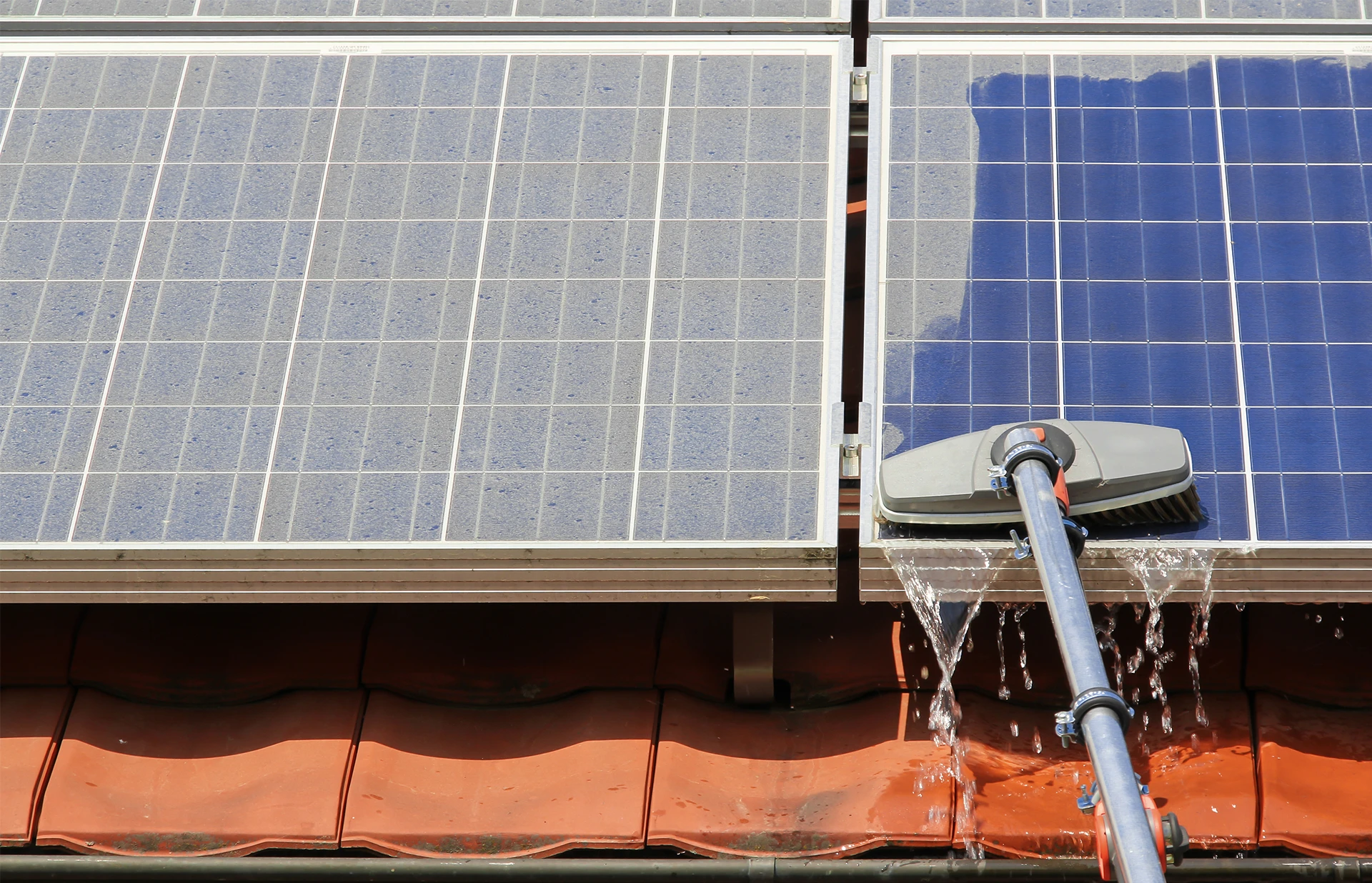Pollen can measurably impair the efficiency of solar modules, especially during periods of high pollen counts, such as in spring. At first glance, pollen may seem harmless. However, depending on its intensity, it can cause solar modules to lose between 2% and 10% of their efficiency.
Pollen can form a fine film on the surface of solar modules, reducing the light transmission of the glass cover. This causes some of the sunlight to be absorbed or scattered before it reaches the solar cells. Depending on the intensity of the contamination, the loss in yield can be several percent.
If pollen is not evenly distributed on the modules, e.g. due to wind, rain or accumulation in corners, so-called hotspots can occur. These areas heat up significantly, which can damage the modules over time and lead to early loss of performance. In combination with humidity or light rain, pollen forms a greasy layer that is particularly stubborn and cannot be easily washed off. This allows more particles to accumulate, which in turn reduces performance. If the pollen is not removed, it can also combine with other contaminants, such as dust, exhaust residues, or bird droppings, to form a permanent film of dirt. This not only impairs efficiency but also shortens the service life of the modules.
Solar modules should be visually inspected regularly, especially in spring. This is particularly important if the modules are located near deciduous trees. Trees such as lime trees, in particular, release pollen and a thick, sticky liquid that is difficult to remove.
Pollen should be removed by cleaning
Pollen should therefore be removed manually or with a professional cleaning agent. Emil Otto’s innovative and gentle cleaning agents have been specifically developed for the requirements of the solar industry and are therefore ideal for cleaning photovoltaic systems, PV modules, and solar roofs.

